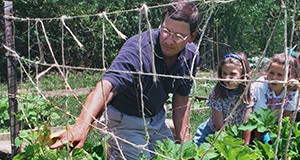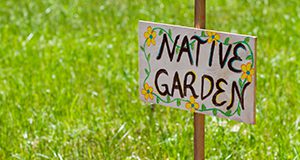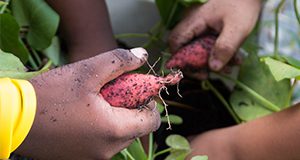National trends indicate that school gardens are positioned to become fixtures in primary and secondary education. This 4-page document outlines key outcomes identified through expert consensus that can be used by Extension professionals to develop a logic model for the school garden program. Written by Susan Webb, John Diaz, and Catherine Campbell and published by the UF/IFAS Department of Agricultural Education and Communication, September 2018.
http://edis.ifas.ufl.edu/wc312
Tag: School Gardens
Understanding the Barriers for School Garden Success: Expert Consensus to Guide Extension Programming
Research has found that youth involvement in school gardens leads to numerous benefits. However, teachers and support organizations must overcome barriers for garden sustainability. This 4-page document discusses barriers for school garden success and how Extension faculty can help education professionals overcome them. Written by Susan Webb, John Diaz, and Catherine Campbell and published by the UF/IFAS Department of Agricultural Education and Communication, August 2018.
http://edis.ifas.ufl.edu/wc315
Important Resources for the Development and Sustainability of School Garden Programs
Extension agents serve as a valuable resource in providing teachers with in-service training and technical education to increase their ability to effectively use gardening as an instructional tool. This three-page document provides an outline of important resources to help in the development and sustainability of a school garden program. Written by John M. Diaz and Erin Elsberry and published by the Department of Agricultural Education and Communication.
http://edis.ifas.ufl.edu/wc283
Developing County Associations for School and Community Gardens
Increasingly, gardeners receive attention for the educational, environmental, health, and social impacts that their projects facilitate within schools and communities. Garden associations allow Extension to play a vital role in providing technical information to support new and existing gardens. This three-page fact sheet outlines the framework used by a pilot garden association program in Polk County, Florida. Written by John M. Diaz, Susan Tyler Webb, and Erin Elsberry and published by the Department of Agriculture Education and Communication.
http://edis.ifas.ufl.edu/wc279
School Gardens: A Growing Part of Schools

School gardens have been popping up like little pea plants in schools all over Florida. Not only are they an excellent way to get fresh produce into classrooms and cafeterias, but they also provide students with a living classroom where concepts related to science, math, agriculture, and nutrition can be learned and applied. This 4-page fact sheet discusses the benefits of school gardens to children and teachers, different types of school gardens, and points to consider while planning. Written by Kohrine Counts and Karla P. Shelnutt, and published by the UF Department of Family, Youth and Community Sciences, February 2016.
http://edis.ifas.ufl.edu/fy1463



